South Africa
An anti-migrant group called Operation Dudula is stopping foreigners from accessing public health clinics in South Africa.
Its members block clinic entrances, demand local identity documents, and turn away people without them.
The Johannesburg High Court has ruled the group's actions unlawful, and South Africa's government says health care is available for all under the law.
But Operation Dudula's popularity is rising in a country that has seen waves of sometimes deadly anti-migrant sentiment.
Operation Dudula member Tholakele Nkwanyana was one of the first people to arrive at the Diepsloot public health clinic in Johannesburg, not to seek medical attention but to stop foreigners from getting care.
She and fellow members of Operation Dudula — which means "to get rid of by force" — are dressed in military-style fatigues as they block the entrance and demand to see patients' identity documents.
Mothers carrying children and others who are sick are turned away and told to go to private hospitals, which, unlike public ones, aren't free.
Similar scenes have played out at government-run clinics across South Africa's most populous province, Gauteng, as healthcare becomes the new battleground in the country's long and painful debate over immigration.
The Johannesburg High Court has ordered Operation Dudula to stop harassing migrants. The group says it will appeal.
Dale McKinley, a spokesperson for Kopanang Africa Against Xenophobia, condemned the group.
"We cannot have private citizens; we cannot have vigilantes running around arresting people or demanding certain things. This is just a basic rule of law," he said. "The only people who are allowed to ask others are government officials.”
McKinley also highlighted that there are, in fact, many South African nationals without documentation.
South Africa boasts the continent's most developed economy and attracts migrants from neighboring Zimbabwe, Mozambique, and Lesotho, as well as from as far away as Nigeria and Ethiopia.
In the year ending March 31, the Department of Home Affairs deported 46,898 migrants who had entered South Africa without documentation, an 18% increase from the previous year.
Operation Dudula emerged a few years ago, and its visibility has grown as mostly young Black South Africans take part.
It's not clear how many members the group has.
Its actions have included closing down foreign-owned shops and blocking the children of foreigners from entering public schools.
Operation Dudula members assert that migrants entering without documents are taking jobs from South Africans, who face one of the world's highest unemployment rates at over 31%.
South Africa has seen sometimes deadly waves of such sentiment.
In 2008, 68 people were killed in attacks on foreigners across the country.
But the focus on denying them health care is new, along with Operation Dudula's organized structure.
The group has regional leaders, participates in news conferences and debates, and has hinted at forming a political group.
South Africa's government has condemned Operation Dudula's actions and insists that the law guarantees health care for everyone, including foreigners in the country illegally.
"We are healthcare professionals. We don't turn patients away because they don't have documentation," Health Minister Aaron Motsoaledi has said.
He and others have met multiple times with Operation Dudula, and the government has posted security at public clinics. Still, police are overstretched in a country with a high crime rate.
In August, three Operation Dudula members were arrested after going into a maternity ward in Soweto and demanding that patients produce identity documents.
Nurses called the police.
They have since been released on bail.
The South African Human Rights Commission, which has sharply criticized Operation Dudula's actions, has said South Africa is following a global rise in anti-immigrant sentiment.
South Africa spends 8.5% of its gross domestic product, or about $15 billion, on health care, higher than anything but education.
And yet it has overcrowded hospitals, medication shortages, and poor management.
But many people in other African countries see South Africa as a relatively attractive destination.
South Africa had an estimated 2.4 million foreign nationals in 2022, about 3.9% of the population, according to official statistics, with no breakdown of those there legally or illegally.
That was up from the estimate of over 958,000 in the 1996 census.
In May, Zimbabwean national Blessing Tizirai moved from South Africa's capital, Pretoria, where she had been looking for work, to the town of Musina near the border.
Four months pregnant, she had been turned away from public clinics several times by Operation Dudula or similar, smaller groups.
She chose Musina because Operation Dudula does not operate there.
"I wanted to go to the clinic with this pregnancy, and they said they need a passport. So it was hard for me to get in, so I decided to come here, and it was easy," she said.
"I felt bad because a lot of people, there are a lot of foreigners that side, and I think for them it's not easy for people, to be told that you don't have a passport, you must go, you must just go back," she added.
Operation Dudula's actions have drawn attention in Zimbabwe, where a lawmaker during a recent Parliament debate brought up the group and suggested that the government do something about the rising tensions, such as pay for its citizens' treatment in South Africa.
Justice Minister Ziyambi Ziyambi replied that the government would not.
Meanwhile, Zimbabwe's political elite largely seek treatment abroad, including in South Africa.




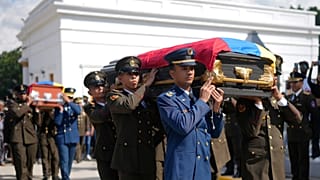
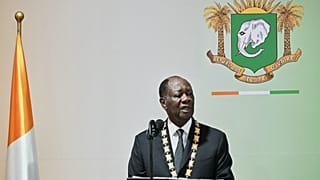
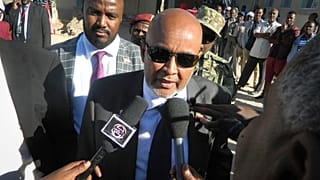
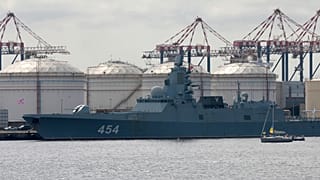
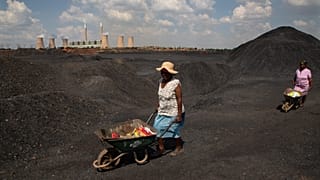
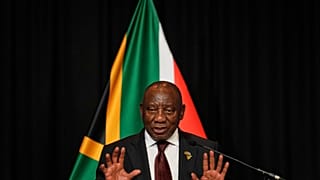
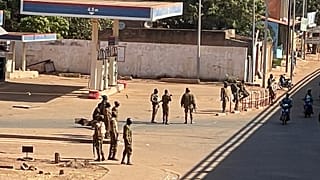
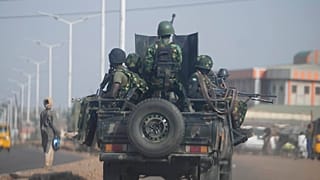
01:16
Cameroon and South Africa set for high-stakes AFCON round of 16 clash
01:13
Death toll rises to 10 in latest South Africa pub shooting
01:24
Death toll in South Africa shooting rises to 12 after one victim dies in hospital
Go to video
3-year-old boy among 11 people killed in South Africa shooting
01:08
Zuma’s 18-year corruption battle nears crucial court ruling
01:00
2027 Rugby World Cup: Springboks and All Blacks set for quarterfinal showdown